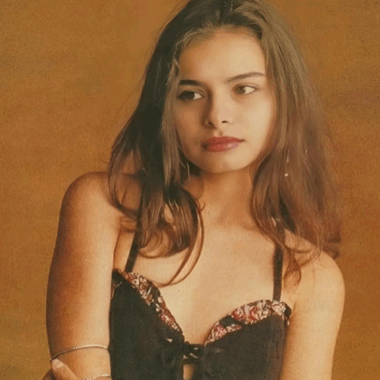
Mazzy Star, formed in Santa Monica in 1989, are one of the most evocative and enduring names to emerge from the intersection of alternative rock, dream pop, and shoegaze. Built around the partnership of vocalist Hope Sandoval and guitarist David Roback, the band became known for their slow-burning atmospheres, hushed delivery, and a sound that felt as fragile as it was timeless. Where many of their contemporaries chased walls of noise or kinetic energy, Mazzy Star moved in the opposite direction, creating space for silence, shadow, and longing.
Their 1990 debut She Hangs Brightly introduced a band intent on following their own path. With Sandoval’s delicate, almost whispered vocals drifting above Roback’s reverb-soaked guitar lines, the record felt intimate and expansive all at once. Songs like “Halah” offered a glimpse of what would become their trademark: a blend of folk sensibility, psychedelic haze, and shoegaze textures, resulting in music that seemed suspended in time.
Two years later, Mazzy Star released So Tonight That I Might See, the album that cemented their legacy. The single “Fade Into You” became their most recognisable work, a track that continues to resonate with audiences decades after its release. Its haunting simplicity, built on a sparse chord progression and Sandoval’s ethereal voice, captured a feeling of melancholy so pure it crossed genres and generations. While the band never chased commercial trends, this song brought them widespread recognition and placed them firmly in the canon of alternative classics.
What set Mazzy Star apart was their ability to slow things down. Their music encouraged listeners to lean in, to sit with emotions rather than rush past them. This sense of restraint became a form of intensity in its own right. While other shoegaze-influenced acts explored density and volume, Mazzy Star explored silence, minimalism, and atmosphere. In doing so, they carved out a sound that was unmistakably their own, one that blurred the line between dream pop and shoegaze while reaching into blues, folk, and psychedelia.
The band’s influence continues to ripple through modern music. Their approach to texture and mood has been picked up by countless artists across indie rock, shoegaze, and even contemporary pop. For groups like Wornsteps, Mazzy Star’s legacy lies in their commitment to emotional honesty and atmosphere. Rather than relying on force, they proved that fragility could be powerful, that understatement could linger longer than bombast. Wornsteps, like many younger acts, have drawn from this ethos, weaving intimacy into soundscapes that still feel immersive and expansive.
Though Mazzy Star’s activity slowed in later years, their 2013 album Seasons of Your Day showed that their spell had not faded. It carried the same twilight mood that defined their earlier work, reminding listeners that some musical voices are eternal.
Today, Mazzy Star remain an essential reference point for artists seeking to merge emotion with texture. Their music continues to soundtrack moments of longing, solitude, and reflection, proving that sometimes the quietest voices echo the loudest. In a genre often associated with volume and distortion, Mazzy Star’s whisper has proven just as powerful, leaving behind a legacy of dreamscapes that feel endlessly resonant.